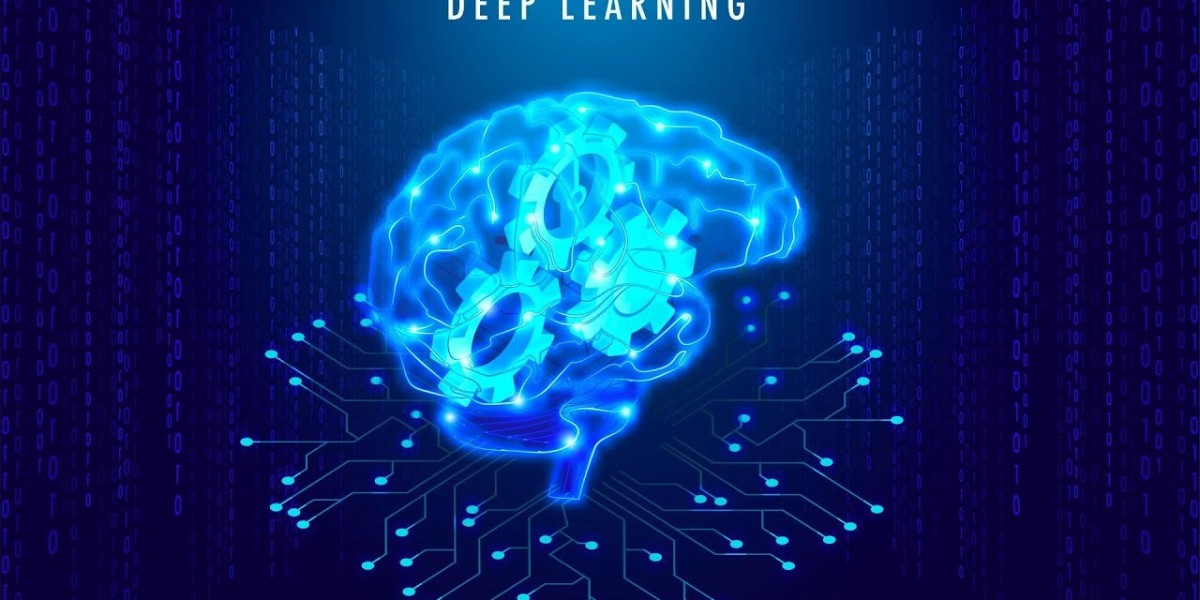Deep learning, which is a subfield of artificial intelligence (AI), has come to be reckoned as game-changing technology cutting across sectors. Through its emulations of human brain neural networks, deep learning allows machines to handle high quantities of data, identify patterns, and make judgments with minimal interventions by humans. From voice-enabled assistants and face recognition to autonomous cars and disease diagnosis, deep learning is reshaping how business organizations function, innovate, and create value.
As businesses are becoming more data-centric, the need for sophisticated machine learning models that can process unstructured data—images, audio, video, and natural language—has exploded. Deep learning is driving this change, making it possible for more precise predictions, real-time automation, and personalized experiences that were only dreamed of before.
Market Drivers: The Intelligence Revolution
The market for deep learning is being fueled by a number of factors. Firstly, there's the exponential data growth. From social media, IoT devices, digital platforms, and enterprise apps, massive volumes of data are created every single day. Deep learning models thrive on breaking this data to render valuable insights, which in turn inform better decisions.
Another significant growth driver is the spike in AI adoption across industries such as finance, healthcare, retail, manufacturing, and automotive. In the health sector, for instance, deep learning is being applied to diagnose diseases from medical images, forecast patient outcomes, and personalize treatment regimens. In finance, it is aiding in fraud detection, risk assessment, and algorithmic trading.
Additionally, advances in computing power—particularly the advent of GPUs (graphics processing units) and TPUs (tensor processing units)—have made it possible to train deep neural networks on large datasets. Cloud computing and AI-as-a-service platforms have only further decreased the barrier to entry, making it possible for even small and medium-sized enterprises to play around with deep learning.
Government programs and R&D spending are also driving market growth. AI and machine learning development are becoming a priority in the long-term digital strategies of countries globally, backing public and private sector innovation.
Market Segmentation
By Component
· Hardware
· Software
· Services
By Application
· Image recognition
· Voice recognition
· Video surveillance and diagnostics
· Data mining
By End Use
· Automotive
· Aerospace & Defense
· Healthcare
· Retail
· Others
Key Players
· Amazon Web Services, Inc.
· Google LLC
· IBM Corporation
· Intel Corporation
· Micron Technology, Inc.
· Microsoft Corporation
· NVIDIA Corporation
· QUALCOMM, Inc.
· Samsung Electronics Co Ltd
Geography
· North America
· Europe
· Asia-Pacific
· South and Central America
· Middle East and Africa
Challenges to Address
Even with its massive potential, the market for deep learning is subject to a number of challenges. One of the biggest challenges is the requirement of large amounts of high-quality labeled data. Creating effective deep learning models tends to need large sets of data, which are not always available—particularly in narrow or sensitive applications such as medicine.
Another issue is the "black box" nature of deep learning models. Their internal workings are opaque, meaning it is hard to understand results or hold anyone accountable. This opaqueness can lead to a lack of trust and regulatory compliance, especially in high-stakes use cases such as finance or medicine.
Moreover, the creation and implementation of deep learning systems involve high-level expertise in data science, machine learning, and AI engineering. The worldwide scarcity of skilled professionals remains a factor hindering market growth, particularly for small organizations.
Conclusion: Intelligence at Scale
The deep learning market is one of the most exciting technology frontiers. Its capacity to process enormous data and derive intelligence in real time is changing business models, consumer experiences, and industries.
As companies aim for more efficiency, innovation, and personalization, deep learning will be the key to making these possibilities a reality. In the future, work to enhance model interpretability, diminish data dependency, and democratize access to deep learning technologies will define the next chapter of expansion.
Fundamentally, the market for deep learning is not merely about intelligent machines—it's about enabling wiser decisions, wiser systems, and a wiser future.









